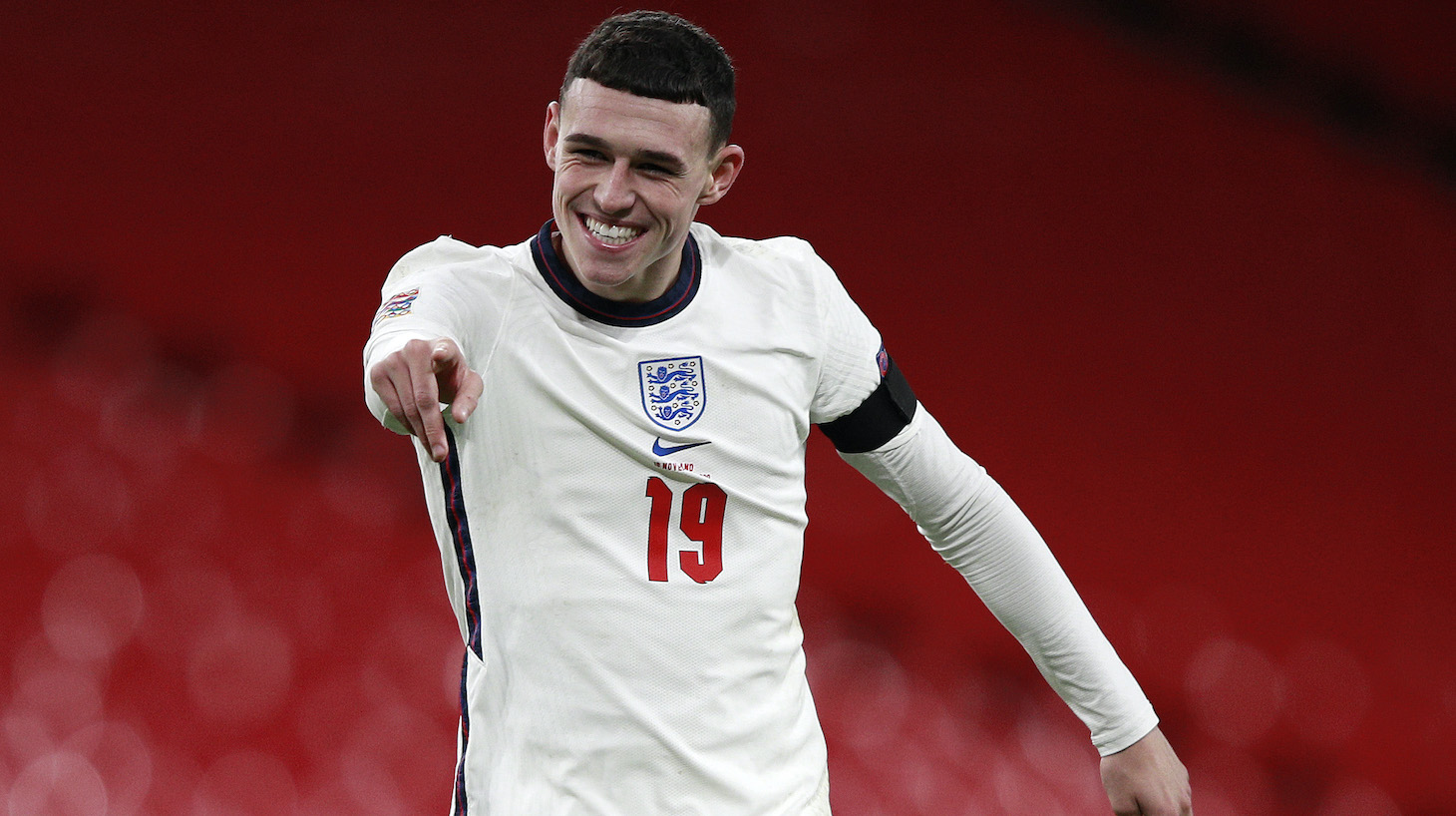Take a look at the following two outrageous touches, one from Phil Foden in Wednesday's England-Iceland match, the other from Jack Grealish in Sunday's England-Belgium match. If someone showed you these clips shorn of their context—say, if the faces were blurred and the kits generic—and asked you to guess the names of the players who pulled them off, I'm positive you'd come up with surnames that end in a vowel.
That's because Foden and Grealish are just about the least "traditionally English" English players imaginable. They have a relationship with the ball that is decidedly continental. You can see it in their attraction to the ball, their command of it, their poise when on it, their desire and ability to keep it as long as possible and release it only when absolutely necessary. It's in their ability to speak the ball's own language, which allows them to use the ball not just as a tool, a means to an end, but as an active partner in achieving those ends. The rest of their individual highlights from those respective matches offers more evidence of just how special Foden and Grealish are when in touch with the ball.
Seriously, can you imagine an England team 20 years ago that featured guys who play like that? And that's no slight to England's history or its traditional playing style. A soccer culture produces players that fit the way the culture plays. Which is to say, it's not a coincidence that Andrés Iniesta is Spanish, and Harry Kane or Jordan Henderson or Jadon Sancho are no less great for being noticeably English. It's just that elite soccer in England today is much different than it had been for so long before, and so it is now bearing fruit that reflects this.
Mostly this is down to the Premier League's influx of foreign players and coaches, and the talents and tactics those players and coaches brought along with them. English soccer around the turn of the century, brimming with kick-and-rush 4-4-2s, didn't produce attacker-playmakers like Foden and Grealish because there was no place for them, and thus no reason for young Englishmen to develop those skills in the first place. But now, when midfields are something to control rather than to just lump the ball over, when wingers more often come inside to play rather than always bombing up and down the touchline to whip in crosses, when the ideas in strikers' heads are as important as those heads' elevation—now, there is a need in the English game for players who can carry and create with the ball in tight spaces between the lines. And players like Foden and Grealish and Mason Mount and James Maddison and Ross Barkley (and, their most recent precursor, Adam Lallana) have emerged to fill that gap.
Foden and Grealish are different kinds of players in different stages of their careers. Foden has the soul of a midfielder with a predilection for the zones of forwards, and is attempting to prove his place at the mega-club with which he came up. Grealish has the soul of a forward with a predilection for the zones of midfielders, and is trying to prove he belongs at the highest level by demonstrating his skills at the minor club he came up in. But what the two players share is a way of feeling the game that is starts first and foremost with getting and keeping the ball.
Their ideal roles—interior midfielder for Foden, creative wide forward for Grealish—didn't really exist in English soccer all that long ago, and it's thanks to the continental influence in English soccer over recent decades that they have emerged in a moment where their full breadth of talents can be most effectively maximized. That makes them outliers in terms of England's recent past, but also eminent representatives of the English present and future.






